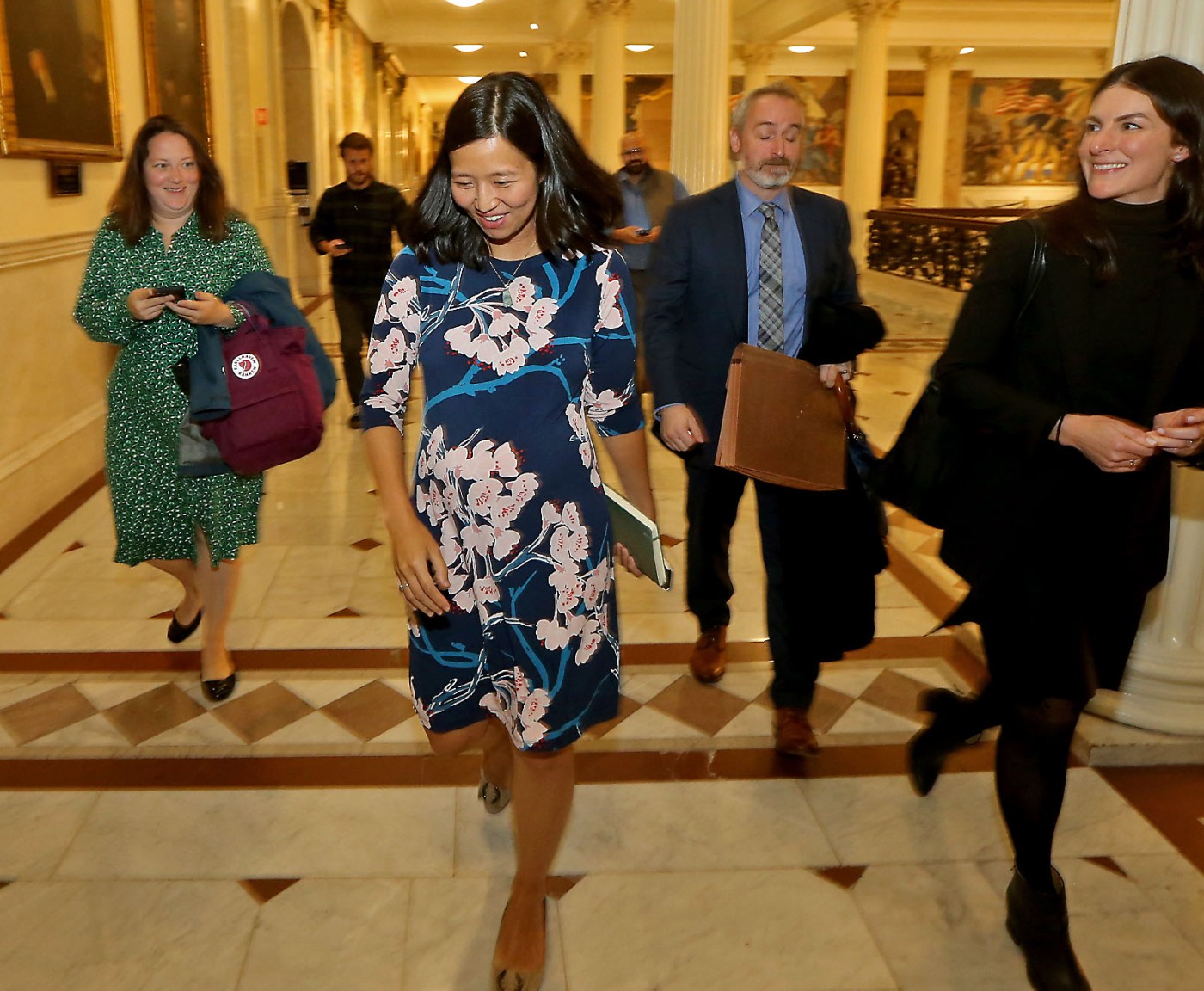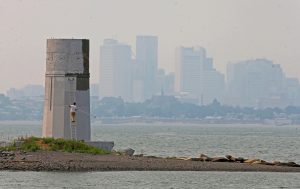
Boston’s business tax hike plan to be hashed out in State House hearing next week
Boston Mayor Michelle Wu’s contentious plan to tax businesses beyond the state limit will be hashed out during a legislative hearing next week, setting up a tight turnaround for state lawmakers to act before the city sets tax rates by month’s end.
The Joint Committee on Revenue, led by Senate and House Chairs Susan Moran and Mark Cusack, will hold a hearing at 11 a.m. Wednesday on Boston’s tax classification legislation, which was revised last month with input from four business leaders and fiscal watchdogs who previously opposed the mayor’s plan.
A prior version of the mayor’s bill, which seeks to shift more of the city’s tax burden onto commercial property owners to provide relief for homeowners, stalled in the Senate at the end of the formal legislative session.
A single lawmaker has the power to block the mayor’s bill in the current informal session, a “wrinkle” Wu acknowledged in a radio interview this week, while expressing optimism that the Senate’s prior reservations about the plan were addressed in the city’s compromise deal with business stakeholders.
“I think the Senate was pretty clear that they wanted to see some changes,” Wu said on GBH’s Boston Public Radio. “We updated and amended the legislation with all of those changes, and are following their guidance and their request for how to feed that back through the process. At this point, I believe the city has done everything that we need to do.”
Wu also noted that the legislation, filed on the local level as a home rule petition, sailed through the Boston City Council, via a 12-1 vote. It was subsequently filed in the House of Representatives by state Rep. Rob Consalvo, a Boston Democrat.
A prior version of the bill was approved by the House in late July, by a 133-24 margin, but encountered resistance from many Republicans in that chamber. The new bill features aspects of a past compromise led by House budget chief and Wu ally Aaron Michlewitz, such as targeted tax relief for small businesses.
The legislation seeks to fend off a 28% quarterly property tax increase in January and 14% annual increase for the average single-family homeowner. The average homeowner would instead see an 18% quarterly increase and roughly 9% year-over-year hike in property taxes.
It was designed to provide relief to homeowners by giving Boston the authority to tax businesses beyond the 175% state limit for a three-year period, with a maximum shift of 181.5% in the first year, followed by a 180% and 178% shift in the remaining two years. The mayor had initially proposed a 200% max shift in late March.
The tax classification shift is aimed at addressing a commercial revenue shortfall in the city’s annual budget, which is driven by changing post-pandemic work patterns that have led to falling property values and vacant office buildings. Real estate market woes have the city staring down a $1.2-$1.5 billion budget shortfall over the next five years, per a prior watchdog report from the Boston Policy Institute.
The city’s $4.6 billion operating budget derives more than 70% of revenue from property taxes. The mayor says her legislation seeks to soften the rate at which declining commercial revenue is pushing more of the city’s tax burden onto the residential sector.
Related Articles
Motion Denied: Judge rejects embattled Boston Water and Sewer Commission employee’s request to delay loan stiffing trial
Report: Boston could look to new taxes to diversify budgetary revenue amid commercial market woes
USPS dismisses Boston City Council subpoena and refuses to testify on late mail concerns
Boston election ballot mess raises concerns about city’s ability to handle ranked-choice voting
Boston Mayor Wu to sign City Council order providing tax break for veteran homeowners
The mayor’s tax plan has been hammered by business leaders, fiscal watchdogs, industry groups and some city councilors, for further burdening a struggling commercial sector and Wu’s rejection of calls to cut a city budget that grew by 8% this fiscal year.
Critics, including Marty Walz, interim president of the Boston Municipal Research Bureau, who was involved in drafting the city’s revised tax legislation, have also cautioned that the plan does not address the impact of declining commercial values beyond its three-year scope.
The Research Bureau released a report this week that highlighted ways the city could implement new taxes or increase existing excise taxes to reduce its budgetary reliance on property tax revenue, while also stressing controlled spending.
The legislation “is not a solution to Boston’s complex public finance and economic development challenges,” Walz said at a City Council hearing last month.
“The new market dynamic for commercial real estate is not a temporary or cyclical change, which means the city, all of us,” Walz said at the time, “must grapple with the budget implications over the long term through responsible approaches to budgeting.”


